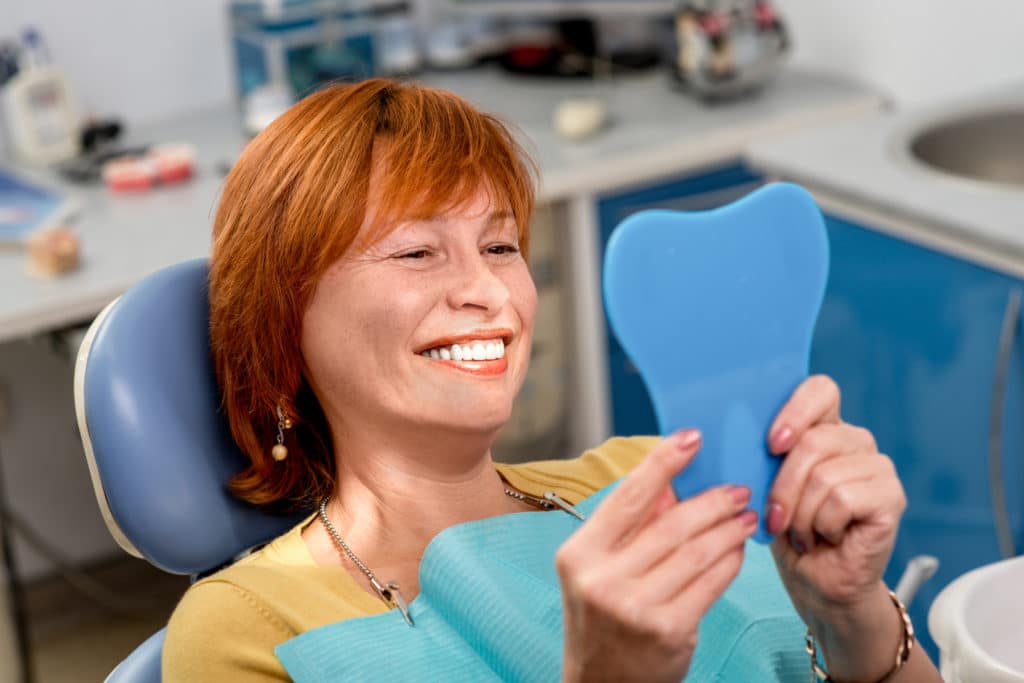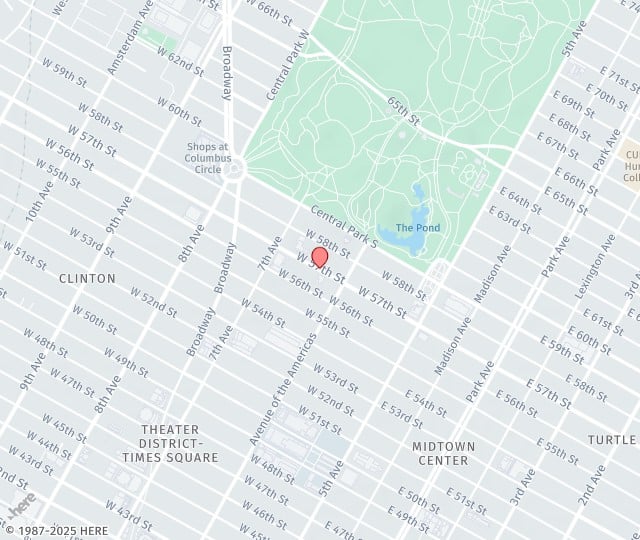Why Is It Difficult For Some People To Become Numb At The Dentist Office?
There are a variety of reasons people have trouble getting numb at the dentist.

Here are a few common reasons:
- Redheaded people have a gene that affects pain receptors, requiring up to 20 percent more anesthetic to achieve numbness.
- Everyone’s anatomy is a little different — some people have additional nerves, or the nerves can be in slightly different areas.
- Anxiety and stress chemicals produced by the body can make anesthetics not as long-lasting or effective.
- Infected areas can be more challenging to anesthetize because they create an acidic environment. Anesthesia wants a neutral pH.
- Anesthetic cartridges could be out of date or could have been stored at too warm a temperature.
What We Can Do If You Have Difficulty Getting Numb?
There is always a way to get you properly numbed for dental treatment. We have a variety of anesthetics and various methods for delivering them. You just may require additional numbing techniques.
In the instances listed above:
- Redheads simply need more anesthetic to become adequately numb.

- It may take a different technique to get to the right spot and numb an area.
- To help with anxiety, nitrous oxide or sedation can be used to relax before giving the injection.
- Infections can be treated prior to the appointment, or an anesthetic block can be used to maintain comfort.
- Our office keeps all anesthetics up to date and stored in a cool room.
Additional techniques we offer:
- The Wand – a computer-assisted system for delivering local anesthesia. This technology offers a comfortable delivery method and a more precise numbness for the tooth or area being treated.
- Onset – a special buffering system for a local anesthetic to help make it more effective. This system is used for all our patients using local anesthetic only (without sedation) because it provides a comfortable delivery.
Who Is A Good Candidate For Dental Anesthesia?
We include local numbing whenever a patient could experience any level of discomfort. Our first priority is your comfort. If you’re anxious about an injection, we have modern techniques and delivery methods, such as the Wand and Onset, that help us comfortably deliver the local anesthetics.
We provide numbing for everything from removing decay and placing a filling to root canals. These are not elective options, but we always use a local anesthetic to keep the patient completely pain-free during the treatment.
Should you still feel anxious, we do offer sedation options to help you relax.
Dental numbing shouldn’t be confused with sedation dentistry, where Dr. Siegelman, a board-certified dentist anesthesiologist, administers oral or intravenous sedation. This is used for more involved procedures, for patients with needle phobia, for anxious patients, when the patient would like us to perform more than one procedure in a session, and for various other reasons. Unlike sedation, dental numbing is a local anesthetic injected to numb the site of the treatment.
Different Types of Dental Anesthesia We Use
For dental numbing, typically we use Carbocaine and Lidocaine. These newer local anesthetics have replaced Novocaine, which was the previous standard.
We can include nitrous oxide with numbing to help patients relax.
What Procedures Are Performed With Dental Anesthesia?
We use dental numbing whenever a procedure could cause the patient any discomfort. This would involve any drilling for a cavity. These procedures would include placing a filling, preparing a tooth for a crown, and a root canal. Any dental extraction requires numbing beforehand. Most gum procedures require dental numbing; root scaling and planing usually only require local numbing, although some patients also often ask for sedation to help them relax.

How long does Dental Anesthesia Last?
Typically, your lips and tongue in the area will be numb for 2-5 hours after the injection is given. Gradually, as your blood flows through the area, it carries away the anesthetic and it is metabolized and broken down. This is how the numbness goes away. We offer a reversal agent, oraverse, that will decrease that time and you will be feeling back to normal twice as fast after a procedure.
Can I Eat or Drink Before Sedation Dentistry?
When preparing for a dental procedure involving anesthesia, you may need to follow some rules regarding eating and drinking.
Typically, for local anesthesia, there aren't strict fasting requirements. However, having a light meal and drinking plenty of water a few hours before your appointment is advisable. Avoid heavy, greasy, or spicy foods. They can cause discomfort during the treatment.

Always check with your dentist before your appointment. Individual circumstances may vary.
What Should I Avoid Doing After Receiving Dental Anesthesia?
After receiving dental anesthesia, there are a few key things to avoid. Abiding by these guidelines will ensure a smooth recovery and prevent complications:
- Refrain from eating while waiting for the numbness to wear off. This helps you avoid biting your tongue or cheek.
- Stick to soft foods initially. Your mouth may be sore post-procedure
- Avoid hot beverages. You may not feel the temperature and could burn yourself
- Stay away from strenuous activities for at least 24 hours. The anesthesia can leave you feeling unsteady.
It’s crucial to follow all aftercare instructions provided by your dentist. This will promote healing and minimize discomfort.
Can Sedation Dentistry Affect My Speech Temporarily?
Yes, sedation dentistry can temporarily affect your speech.
The anesthetic works by blocking nerve signals in the specific area of your mouth being treated. This leads to numbness in your lips, tongue, and sometimes even your throat.
For a short time, the numbness can make it challenging to speak clearly. You may also have some difficulty fully controlling your facial muscles.
Typically, the effects last a few hours. You might experience slurred speech or difficulty pronouncing certain words during this period.
Rest assured, these issues are temporary. Normal sensation and control will return once the anesthesia dissipates.
How Do Dentists Handle Patients With a High Tolerance to Anesthesia?
Our dentists have plenty of experience working with patients who have a high tolerance to anesthesia.
They first conduct a thorough medical history review. This gives them a chance to understand the patient's previous experiences with anesthesia.
They may also use a combination of different anesthetics or increase the dosage within safe limits. These options will help them achieve the desired numbing effect.

Additionally, dentists might employ adjunctive techniques such as nitrous oxide (laughing gas) or conscious sedation. This will enhance the effectiveness of the anesthesia.
Continuous monitoring and communication with the patient throughout the procedure are essential. They allow our dentists to ensure comfort and address any issues promptly.
Dental anesthesia side effects
There are no aftereffects with these local anesthetics. While the numbing is ongoing, you should be careful when drinking liquids, as the lack of feeling can cause you to lose some of the liquid. This can be a problem with hot drinks, such as coffee. There are no restrictions on driving or other activities.
See What Our Patients Have To Say…
"I am someone who truly experiences dental phobia. This left me with severe dental issues. I can’t begin to explain how happy I am to have found this dental practice. I have had major work done her over the years with no issues at all. The entire staff is warm and welcoming. They explain all planned work and listen to, and address, all of my concerns. They understand my fears and do everything possible to alleviate them. I can smile again! I highly recommend this practice!"
Why Choose Louis Siegelman, DDS?
When you choose Louis Siegelman, DDS, for dental anesthesia in New York, you will receive top-notch care from a board-certified dentist anesthesiologist.
Dr. Siegelman is known for his skilled and compassionate care. He has years of experience working with nervous patients and uses sophisticated dental technology to enhance his treatments. He offers different types of anesthesia, from mild sedation to general anesthesia, to make even the toughest procedures comfortable.
Dr. Siegelman and his team provide all kinds of dental care, from cosmetic work to general dentistry. They serve patients from Long Island, New Jersey, and Connecticut. The staff speaks several languages, including English, Ukrainian, Romanian, Russian, and Portuguese. They work hard to ensure clear communication and personalized care.
Schedule a Consultation Today!
Dr. Louis Siegelman has extensive experience treating patients with dental anxiety, dental phobia, and needle phobia. Call today at (212) 974-8737 or fill out a Contact Form here to learn more about these problems in New York City, Westchester County, Long Island, Rockland County, New Jersey, and Connecticut.

